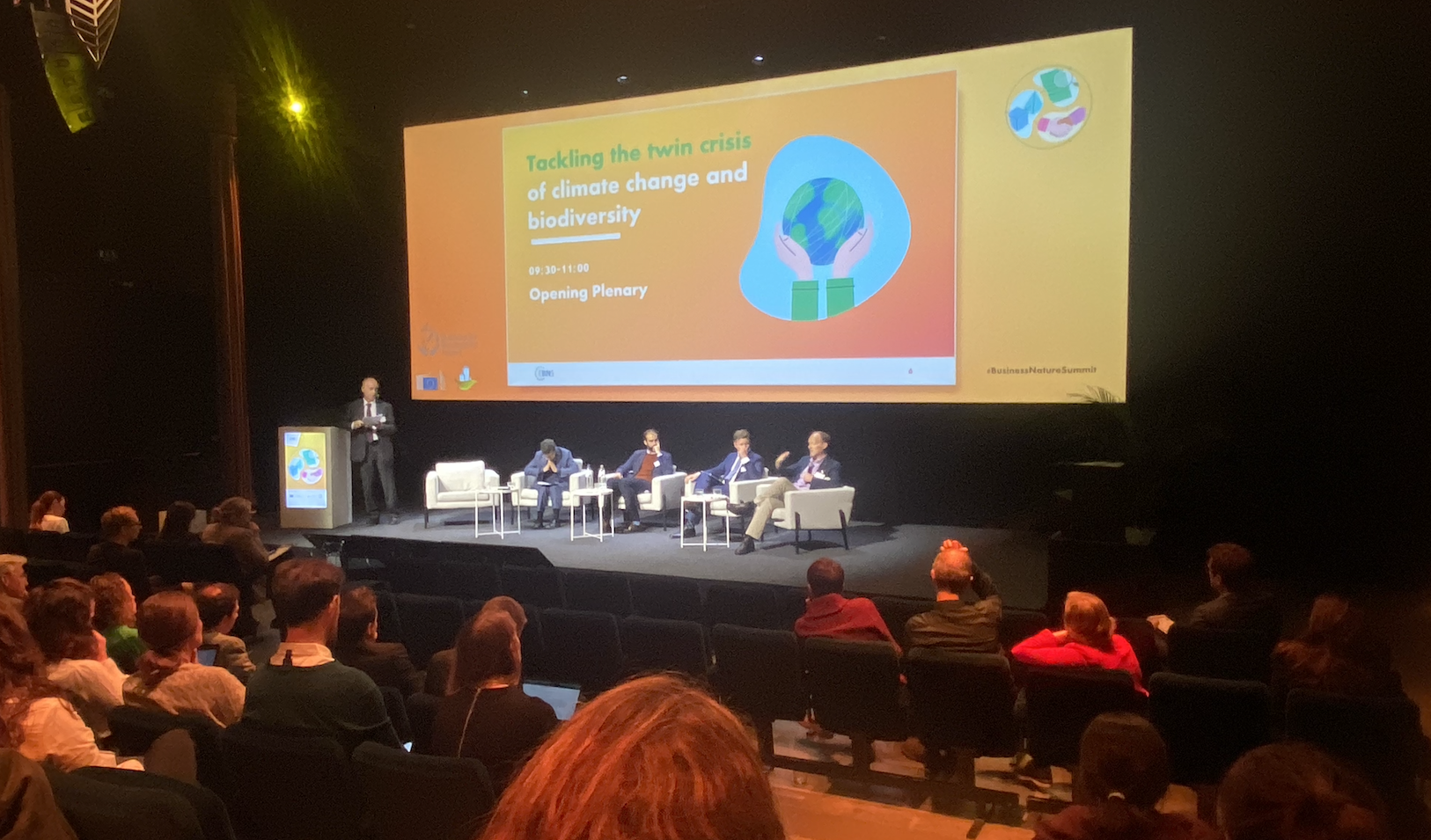
Tackling the twin crisis of climate change and biodiversity
19 October | Opening plenary | 9.30 - 11.00 CET
A sustainable global future for people and nature is still achievable but requires transformative change with rapid and far-reaching actions of a type never seen before, building on ambitious emissions reductions and the protection of nature. Addressing the synergies between mitigating biodiversity loss and climate change offers the opportunity to maximize benefits for people and planet and meet global development goals. In a world affected by multiple crises, what measures exist that can enhance ambitious actions from business and finance for people and planet? How can business and finance tackle these concurrent crises, and what are the needs to facilitate action?
This session aimed to set the scene on the latest policy developments at the EU level to address climate change and adapt to it, and their relevance for businesses. Speakers showcased businesses and finance that are taking steps to move beyond climate actions to understanding multiple environmental risks and opportunities, and they discussed what supplementary actions are needed to achieve net positive impacts on the planet. In the run up to COP15 and COP27, this session stressed the critical year this is for nature and climate; and the role of policy and business to achieve ambitious agreements to tackle biodiversity loss and climate change.


Joe Walston, Executive Vice-President of Global Conservation Programme at the Wildlife Conservation Society, highlighted the need for clear policy and guidance by governments that align with the outcomes of the upcoming 15th meeting of the Conference of the Parties to the Convention on Biological Diversity (CBD COP15) and the 27th session of the Conference of the Parties to the United Nations Framework Convention on Climate Change (UNFCCC COP 27).
In particular, he stressed the critical importance of Ecological Integrity being at the heart of the post-2020 Global Biodiversity Framework. Areas with high ecological integrity have outsized importance for climate, biodiversity and other values. Maintaining their unique natural characteristics is of the highest priority for people, conservation and climate. Defining clear, measurable targets for nature will support accountability on biodiversity and climate risk. Read more.
However, the absence of commonly agreed-upon metrics to measure our relationship with the natural world and achieve common development goals can prevent progress. A metric on Ecological Integrity can therefore help to fill this gap as it brings together the climate and biodiversity agendas – without requiring governments and businesses to go out and collect lots more data.
Speakers
- Mr. Joe Walston, Executive Vice-President, Global Conservation Programme, Wildlife Conservation Society
- Mr. Richard Mattison, President, S&P Global Sustainable1 and CEO, S&P Global Trucost
- Mr. Gilles Tisserand, Vice-President, Sustainability Climate & Biodiversity Tetra Pak, and Partner, Time for the Planet
- Ms. Clara de la Torre, Acting Director General, DG CLIMA, European Commission, represented by Mr. Alexandre Paquot, Deputy Director General Innovation, Adaptation and Resilience, Stakeholder Relations, DG CLIMA, European Commission
Moderator
- Mr. Humberto Delgado Rosa, Director for Natural Capital, DG Environment, European Commission